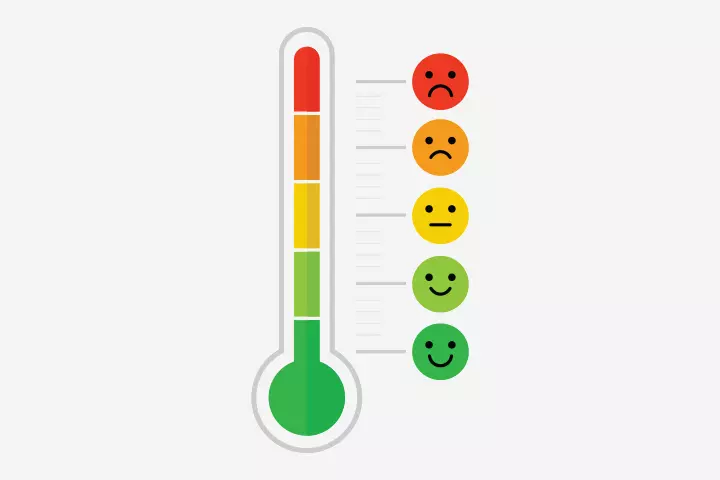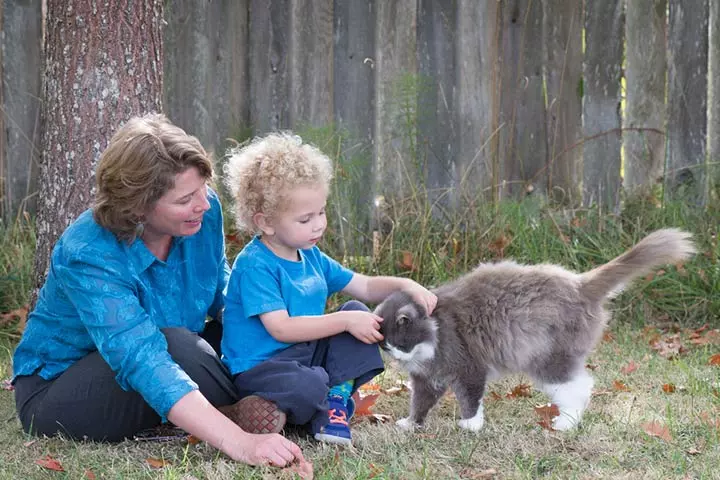

Image: Shutterstock
Anger is an emotion that all of us have to deal with from time to time. However, it might be more challenging for our kids to manage their anger and frustration. They might often struggle to comprehend their negative emotions, which may consequently lead to unnecessary tantrums. However, there is good news! As parents, you can help them manage their feelings and guide them when they find themselves in an unpleasant situation. Below we have listed down five ways you could help your children identify their negative emotions and manage them effectively.
1. Have A Feelings Thermometer
Image: Shutterstock
Children don’t have a lot of experience in coping with their emotions. As they are still learning how to deal with negative feelings, they inevitably act out in the only way they know — by throwing a tantrum. As parents, you can help your kid identify their emotions using an “intensity of anger thermometer”. This allows young kids and toddlers to recognize the early stages of anger, thereby preventing it from turning into a full-blown temper. You could do this by drawing a large thermometer on a piece of paper. Now write numbers from 0 to 5 in ascending order with 0 at the bottom. This scale can be used to associate a feeling with each number on the thermometer. For instance, one could be associated with being calm and 5 with being furious. The numbers in between can be used to express intermediate stages, such as being bothered, angry, and frustrated. You could also use colors to differentiate each stage.
2. Help Your Kids Identify Their Emotions Better
Image: Shutterstock
It is crucial that your child identify the different emotions that they go through. Failing to recognize their feelings will further confuse and frustrate them, which would eventually cause them to act out in an unpleasant way. Teach your kids about the negative emotions that they may feel by improving their vocabulary. You could start off with basic ones such as feeling happy, sad, angry, frustrated, etc. Having words to express what they are going through will help them communicate those feelings better. You could also use pictures and stories to help them identify different emotions. Another way to help your kid communicate their feelings is through games such as “I feel…because of….”.
3. Help Kids Figure Out The Reason Behind Their Emotions
Image: Shutterstock
Let your kid know that asking questions when it comes to handling their emotions is a great way to deal with them. Tell your kids to ask themselves the reason for feeling a certain way. Asking questions like “Why do I feel angry?” or “Why do I feel sad?” can help uncover the reason for feeling so. Finding answers to such questions will help them know more about themselves and their emotions. Having an inner conversation with oneself is imperative while managing one’s feelings. It also helps your kids grow emotionally.
4. Normalize Every Emotion
Image: Shutterstock
Kids may feel frightened when they experience intense emotions such as rage and sadness. Let them know that it is normal to feel such emotions and tell them that as adults, you feel the same way from time to time. Let them know that feeling angry or frustrated is how the body tells you that something is not right. Educating them on these feelings will help them feel more at ease in such situations. Having a conversation with your child on why it is okay to feel frustrated will let them manage it better in the future.
5. Foster Empathy
Image: Shutterstock
While it is important to educate kids on negative emotions, make sure their anger does not prevent them from being rational. As parents, teach your kid from time to time to approach a situation from a different point of view by promoting empathy. If your child does not want to talk about their emotions, ask them how their favorite character would react in such a situation. This will help them figure out their feelings and identify the problem at hand. Nurturing empathy at an early age is essential to develop your kid’s character and to help them grow as a person.
Apart from teaching your kids to deal with their negative emotions, it is also important for parents to set a good example of themselves that the children can follow. Always remember that your kids absorb everything that you say and do. So make sure you work on your own emotions as well. You cannot expect your child to figure out their feelings if you are a hot mess yourself. Ensure you set a good precedent for them and are a good role model that they can look up to. Let us know in the comment section below how you deal with your kid’s tantrums.
Community Experiences
Join the conversation and become a part of our nurturing community! Share your stories, experiences, and insights to connect with fellow parents.


















